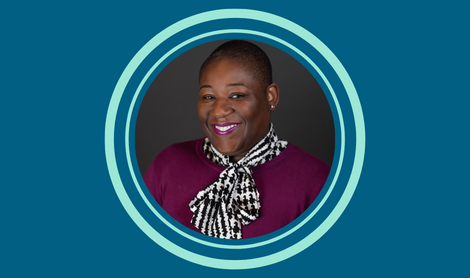Leaders Program Alumni:
Mark Michael
At our recent annual conference in Denver, NACSA invited leaders to talk one-on-one with us about their vocation. In our Story Suite, these conversations focused less on the WHAT of authorizing and more on the WHY of authorizing: why we do this work, and why we believe it is making a difference.
What follows is an excerpt of our conversation with a member of the 3rd cohort of the NACSA Leaders Program: Mark Michael, Director of the Office of School Sponsorship, Ohio Department of Education.
NACSA: How did you connect into the Leaders Program? How did that come about for you?
Mark Michael: Last year, the individual I reported to brought it up to me, and he had more knowledge about NACSA than I had. I hadn’t immersed myself. So he said, “Hey, look at this program. I think you’d benefit from it.” So I did, and I applied, and it was one of the best things that’s happened to me professionally.
Oh?
Mark: It really helped me think through the different aspects of my profession, what I’m doing, what I take out of it. It helped me change that. When I look at what I was doing before, it was more of a job than a profession. My background is in law. I’ve been with the Department of Ed for 10 years – the first six were in the legal department, and I was counsel to the Charter Schools program.
And so, that kind of got me interested in it, and then the legislature got the department into direct authorizing in 2011, so I was selected to lead the program. The one thing the Leaders Program did was help me develop an appreciation for where the impacts are, where to draw personal satisfaction from the work I am doing.
It kind of redefined that for me. We’re working to create unique education opportunities for kids that they may not have had elsewhere..” And as an authorizer, we’re a little bit removed from that somewhat.
The schools are on the front lines. The teachers are on the front lines. But what I learned is that what I’m doing today may be small, but it may have an unforeseen benefit for a child that I never see personally, but just knowing that what I’m doing today matters.
Whether it’s perspective or a certain tool in your toolbox, what do you have now on the backend of Leaders that you didn’t have going into it??
Mark: I guess it’s a lot of knowing what I didn’t know. Knowing what you don’t know, and then knowing where to go to get the answers and the help you need to fill that gap is huge. And so, now I’ve met a whole network of people that have done the same thing that I’ve done, have gone through similar things, and already have a wealth of information to pass along their perspectives that are useful to draw from that I didn’t have. I was just creating our program from scratch according to what Ohio law said, but there was this whole wealth of professional experience out there and now I know it’s there. If I’m running into a problem, I’m going to send a group email first to the cohort and say, “Has anybody experienced this? Do you have documents that can help or perspectives?” and you get 10 responses right away, and it’s been great. That’s what I didn’t have in the beginning, and that’s what I think is so valuable right now.
Will you really get 10 responses?
Mark: Pretty much everyone. We had 11 people in the cohort. Pretty much everyone will weigh-in. We have a pretty close group and we all liked each other a lot, still do, and just walking in [to Conference] yesterday, I saw people right away. It’s just like we pick up right where we left off and it’s really nice.
Can you think of an especially enjoyable aspect of your day-to-day work or an especially frustrating aspect of your day-to-day work?
Mark: On a more micro level of my day-to-day work, I’m putting my different pieces into our program that maybe weren’t there before or didn’t have the quality that they should. For example, our application process. It’s been an evolution where we’ve redone it every year. The first year, we hadvery statutory, limited criteria. We had 15 items that asked for statements or descriptions. If an applicant provided a sufficient statement or a description, I had to approve it and…they had an appeal provided directly into court if we said no.
The challenge throughout has been to interject quality wherever we could. So through the Leaders Program, my project was to take as many of the quality standards from NACSA that I could and interject them into our application requirements under one of the 15 criteria. Being able to put together those pieces that I want to have, getting them done, getting them in place on a day-to-day basis, that’s really exciting for me.


